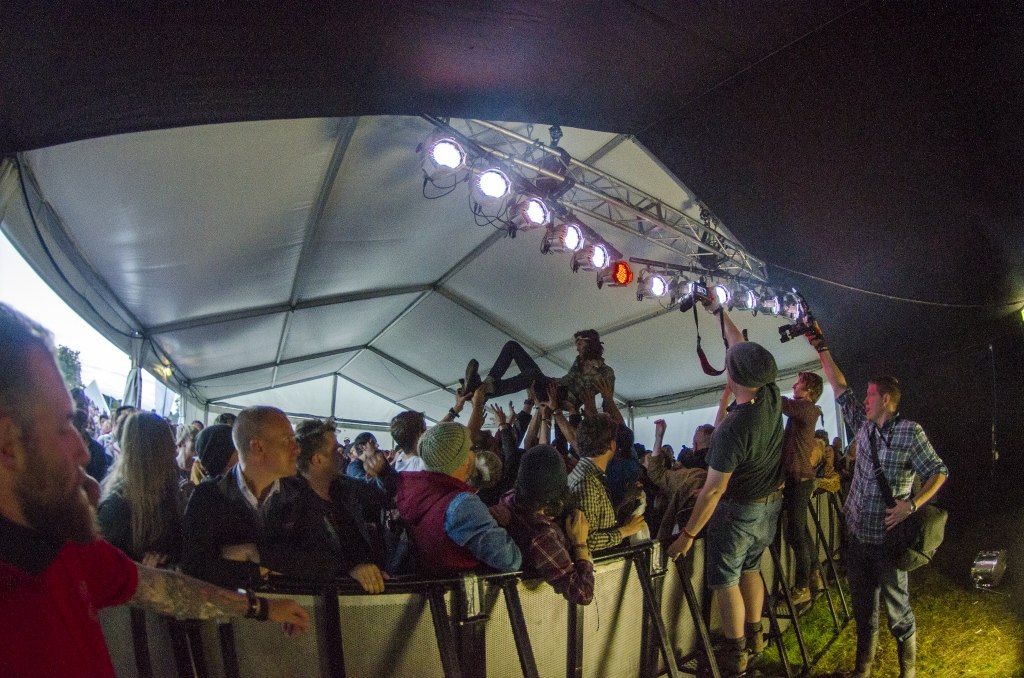The record industry is dead, labels are in turmoil and the media never seem to shut up about it. Whether you’re indie, pop or neo-prog-rock-electro – unless you sell your soul to Cowell and his Saturday night sob stories show, Web 2.0 is your only future and social media is feeding the new ethos of DIY.
If you read the “success” stories, journalists make it sound all too easy. Upload some demos to SoundCloud, record a couple of cover versions for YouTube then tweet about them, invite your mates to like your Facebook fan page and you’ll be in the NME in no time. Just like the Arctic Monkeys. Done.
But it’s not that easy. Most artists that have supposedly “broke” into the mainstream using social media already had; either famous relatives (1975), studied at the BRIT School (take your pick) or big money management behind them.
Trying to use the internet’s power to break down old industry barriers is an art and from what I’ve seen while working in new music media and social marketing, a lot of new acts are failing at the very basics.
So if you don’t have famous parents, a scholarship to BRIT School or the lack of a soul it takes to go on “Britain’s got an X-Factor”, here are five essential social media tips that could help you make it in the big bad world of internet self-promotion.
Brand your band
Whether you like it or not, if you want to get an audience that’s more than just your extended family and the weird kid from school, you need to think of your band as a brand. That means you need to protect your name online.
Use a service like NameChk to see which unique usernames you can get on the main social networks, then pick your favourite and sign up for all the networks you need.
Doing this makes it a hell of a lot easier for people to find you on their network of choice. It also helps when people are cross posting to Twitter from Instagram and avoids a complete random getting tagged in their uber cool filtered photos of your gig last night.
Sell out to SEO
Your name is crucial to your identity. You want it to say everything about your sound, your image and the scene you’re part of. We get that. But Google doesn’t.
You may think a string of punctuation will look really awesome on a poster and help your name stand out, but when it comes to someone searching for you online, it’ll make you harder to find than Miley Cyrus’s dignity.
Search engines like normal English words. They don’t work well with punctuation or bad spelling. They also won’t help people find you if you share the same name as someone/something a lot more famous than you.
Go for something unique, but make sure it’s not a spelling mistake or full of random characters otherwise you’re setting yourself up to fail. Also, you can’t have punctuation in most social network usernames. So if you’re adamant you want to be called J!$$ers, you’re just making it harder again for people to tag you when they’re tweeting about their new jam.
Fill out your profiles properly
Last year, while I was helping create the shortlist for a line-up competition, about 60% of entries had incomplete social profiles. This made it very hard to find out more about the bands entering, see what kind of things they’d been up to and most importantly, that I was looking at their official profiles in the first place.
On every major social network you’re given a bio section. You’re usually given the chance to provide links to other profiles too. Make sure you use them all, giving key details and add links to your main online profiles that are active.
It’s amazing how many bands don’t do this. Labels, radio stations and journalists all look at your social profiles to do lazy research and judge your fan base. Make it easy for them and your fans to find the right profile for so you get the right exposure.
Put your details on gig posters
Whether you like it or not, people love to take pictures of what they’re doing and posting them online, especially at gigs. And let’s be honest, if you’re reading this cause you’re still trying to break through – you’re in no position to throw a Morrisey style strop and walk off stage if they do.
As an unsigned band embrace this free publicity as a great way to build up a buzz and get new fans. If your stage presence is worth taking a photo or film of to share, it’ll hopefully make their friends want to check out your next show to see it for themselves.

Put your Twitter username on gig posters. If you’ve followed the earlier point on usernames, that’ll be enough for them to find you on any other network and make sure they’re spreading the good word about the right band. Unless you suck, then put someone else’s username on the posters.
Snoop (dogg) on your fans
If you’re making music, chances are you want people to be talking about your tunes. The great thing about social media is, you can hear what people are saying without them even talking at you.
Use tools like Hootsuite or TweetDeck to set up social searches for your band name or gigs and festivals you’re playing at. Then when you see people talking about how super amped they are to go to the show, reply to them saying how you can’t wait to play.
Send them a link to your latest tune on Soundcloud so they can learn the words or link to a YouTube video of you practicing your Van Halen jumps for the gig so they know what to expect.

It doesn’t take much to amplify the buzz people are already building. At a festival it could even help your performance reach critical mass and bring the crowds to your slot come the day.
But wait, there’s more
These are just a few basic things you can do to help get the most out of social media when promoting your music online. There’s loads more still to come in part two, and maybe even a part three. So if you like the above, check back next week for more of the same.
If you’ve found any of the tips useful share the love with the buttons below, or weigh in with your own advice down in the comments. And, as ever, if you need help with your online life just get in touch.


Comments are closed.